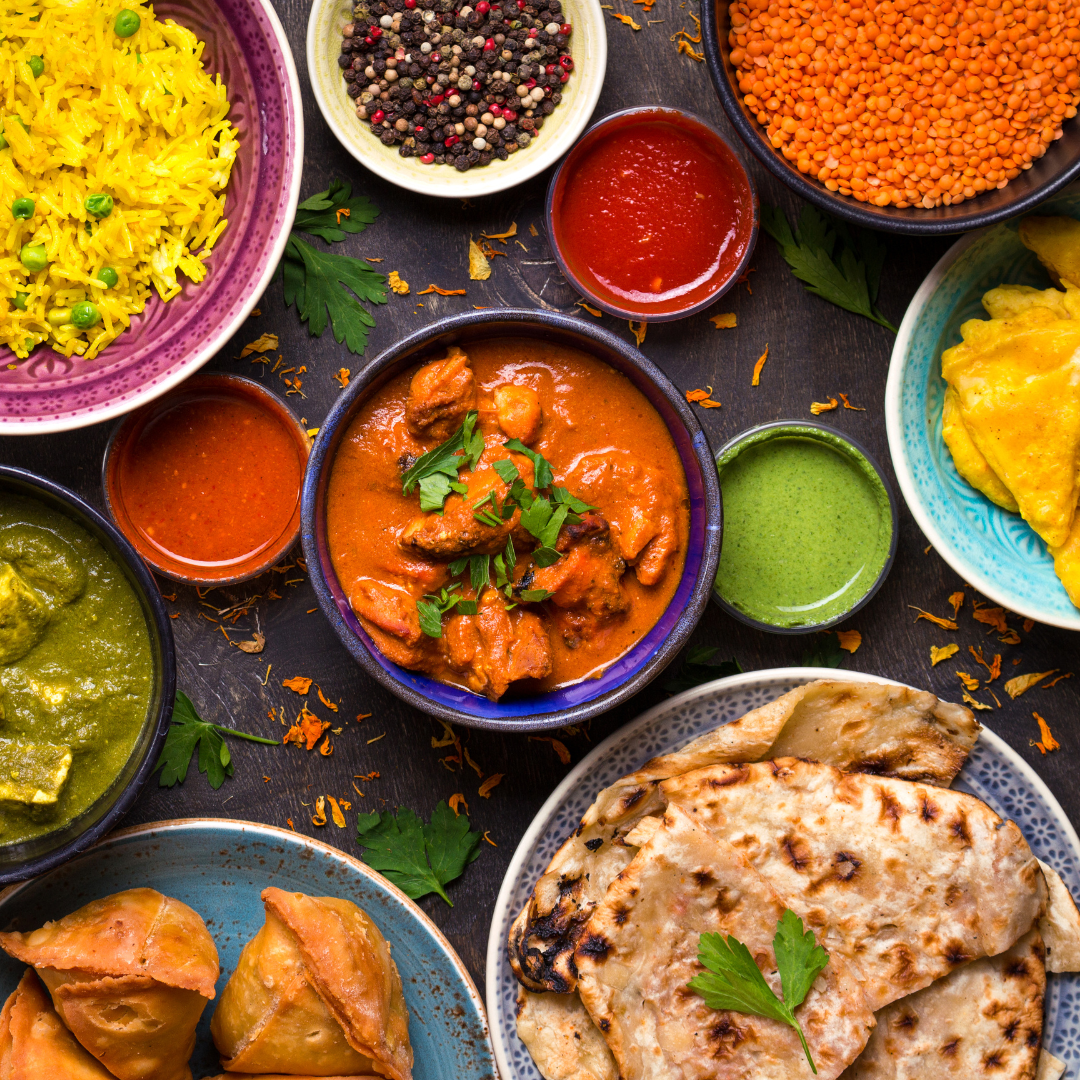
Top Reasons You Should Cook and Eat Indian Food
“Indian cuisine is a treasure trove of ancient wisdom, with its use of spices that not only enhance the taste but also provide health benefits.” – Unknown
Cooking and adopting a whole foods diet can be more fun when introducing new cuisines.
Traditional cuisines are often based on health formation. Indian cuisine offers some of the most flavorful and nutritious. There are many benefits to consuming common Indian foods, and incorporating these popular dishes into your is an excellent way to support overall health and well-being.
Indian recipes often feature a variety of whole grains, legumes, vegetables, and spices that provide a wealth of nutrients to the body.
Indian cuisine is well known for its use of spices, which add distinctive flavors to dishes but also provide numerous health benefits. For example, spices like turmeric, cumin, cinnamon, and ginger have anti-inflammatory properties and have been shown to boost the immune system, improve digestion, and even reduce the risk of certain chronic diseases.
India is a predominantly vegetarian nation, and their diet is rich in abundant vegetables. Vegetables are an excellent source of fiber, vitamins, minerals, and key phytonutrients. This diet is ideal for maintaining good health and good weight.
Most Indian dishes include a variety of vegetables, like spinach, cauliflower, eggplant, and bell peppers. Many of these vegetables were not originally grown in India but were introduced to India by Portuguese or British colonists. However, they have become an integral part of Indian cuisine and fill many dishes.
With the colorful and flavorful array of vegetables, you can easily incorporate them into a wholesome meal.
Vegetables help boost immunity throughout the body, support gut health, and reduce disease risk. Veggies also provide fiber, key vitamins, and phytonutrients–key facets to overall health.
Legumes provide a protein source for many Indian dishes. Legumes are considered a staple in a longevity diet because of their healthy protein source and because they are a source of fiber, B vitamins, and minerals. Perhaps the heartiest of Indian dishes, daal is a fragrant lentil curry flavored with cumin, turmeric, cinnamon, garam masala, and other spices. Daal is typically made with a variety of lentils like toor daal (split pigeon peas), masoor daal ( red lentils ), and chana daal ( chickpeas).
Traditionally, daal is served with rice or naan. It can also be served with vegetables or enjoyed as a soup. It is a source of high protein and fiber. In fact, compared to other legumes, lentils have the highest insoluble fiber content and also provide high quantities of prebiotic carbohydrates. Insoluble fiber can help with bowel regularity but also provides nutrients to the friendly gut bacteria. The prebiotic carbohydrates provide support for these good guys, and our bodies are rewarded with the production of short-chain fatty acids, which are anti-inflammatory, as well as the production of mood-enhancing chemicals like dopamine and serotonin, beneficial for mental health.
Spices are a crucial part of Indian cuisine, adding flavor and nutritional benefits. Here are some common spices used in Indian cooking and their potential benefits:
- Ginger: Ginger is known for its anti-inflammatory properties and has been shown to help with nausea/upset stomach, reduce anxiety, build immunity, and decrease cholesterol. Whole grains are a vital part of Indian cuisine, with a rich history dating back thousands of years. They are also an essential component of a healthy and balanced diet, and Indian cuisine is rich in a variety of them. Unlike refined grains, whole grains include the entire grain kernel, which makes them more nutritious.
- Turmeric: Turmeric, whether fresh root or in a dry powder form, contains anti-inflammatory and antioxidant properties that can help with muscle pain, heart health, and some types of cancer.
- Cumin: Cumin seeds also have antioxidant properties, which can possibly help prevent some types of heart disease and high blood pressure.
- Garan Masala: Garan masala has antioxidant properties and has been shown to aid in digestion. It also helps increase the absorption of other nutrients. Some studies have shown it can reduce blood pressure and improve heart health.
Some commonly used whole grains in Indian cuisine include whole wheat, millet, sorghum, and rice.
They may typically appear in roti, dosa, idli, or biryani. These options are packed with fiber, B vitamins, and minerals and can help sustain energy and support digestion. Experiment with different whole grains to add variety to your meals and reap the benefits.
If you are interested in learning more about traditional Indian cuisine, be sure to join us for our Global Table presentation of healthy dishes from India. The class will include demonstrations, recipes, and tastings of the health-promoting dishes.



